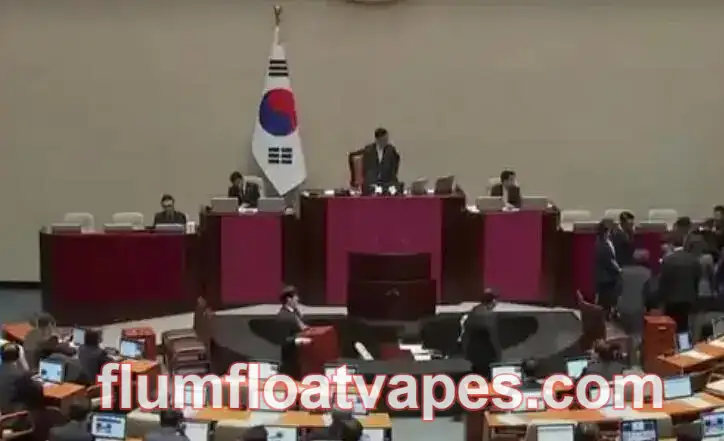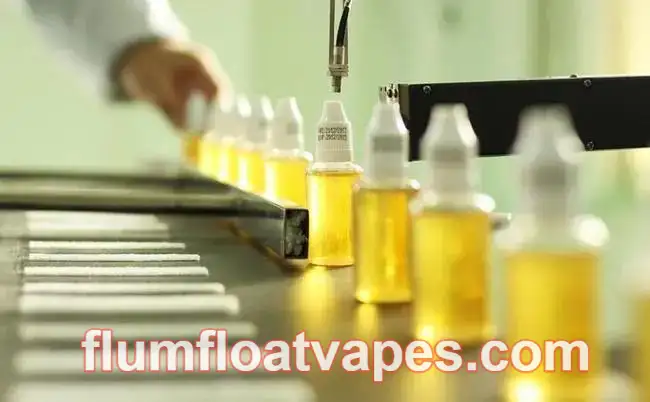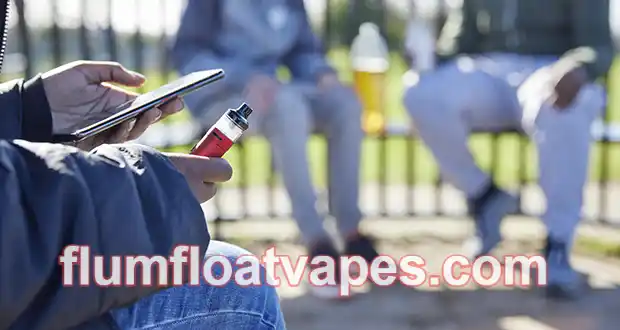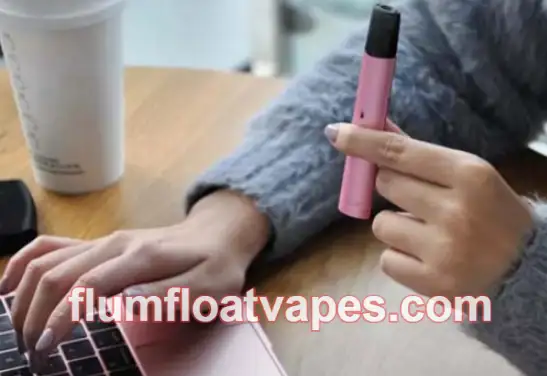South Korea's Impeachment Crisis Could Delay Vital Vaping Regulation Legislation
South Korea’s ongoing political crisis, stemming from President Yoon Suk-yeol's impeachment controversy, could significantly delay the passage of a crucial piece of legislation aimed at regulating synthetic nicotine. This delay could exacerbate existing regulatory gaps and lead to serious long-term public health consequences.
The proposed amendment to the Tobacco Business Act (TBA), which would categorize synthetic nicotine products—commonly used in vapes—similarly to traditional tobacco products, was initially expected to undergo review in late 2023. However, the chaos surrounding President Yoon's impeachment proceedings has led to the suspension of legislative discussions, with the amendment now likely to be pushed back until 2025.
Currently, synthetic nicotine, which is widely used in vape products, remains outside the scope of tobacco regulations in South Korea. Industry experts have long advocated for its inclusion under the TBA, citing concerns that synthetic nicotine poses similar health risks to traditional tobacco. They argue that since both synthetic and natural nicotine can harm the human body, they should be regulated in the same way to ensure fairness and better public health protection.
The Health Risks of Synthetic Nicotine
A recent study published by South Korea’s Ministry of Health and Welfare raised alarms over the safety of synthetic nicotine products, particularly the liquids used in vapes. According to the study, synthetic nicotine liquids contain 45 harmful substances, including carcinogens and reproductive toxins, which surpass the 41 harmful substances found in an equal volume of natural nicotine. These findings underscore the urgency of bringing synthetic nicotine under tighter control.
Synthetic nicotine, unlike its natural counterpart derived from tobacco, is created artificially in labs, making it harder to track and regulate. In 2020, South Korean lawmaker Park Seong-hoon proposed an amendment to the Tobacco Business Act that would include synthetic nicotine in the same regulatory framework as traditional tobacco. Although the proposal gained traction in Parliament, it has yet to be passed due to political gridlock.
In November 2023, South Korea’s National Assembly held a committee meeting to discuss the potential amendments, with plans for a public hearing. However, the impeachment saga of President Yoon has rendered the National Assembly largely paralyzed, leading to indefinite delays in the bill’s progress. The public hearing initially scheduled for early December 2023 has been postponed with no clear date for resumption.
The Rising Threat to Youth
One of the most concerning aspects of the delay is the unregulated nature of synthetic nicotine products. Vaping products that contain synthetic nicotine are currently exempt from taxes, making them significantly cheaper than traditional tobacco products. This price gap has contributed to the increasing popularity of vapes, particularly among younger consumers. According to data from the Korea Disease Control and Prevention Agency (KDCA), about 70% of teenage smokers begin their nicotine use with vapes.
The lack of regulation also means that there are fewer controls over where and how these products are marketed and sold. This has led to widespread availability of vapes in retail stores, online platforms, and even convenience stores, making them easily accessible to young people. The flavored varieties of vapes, which include fruity, sweet, and candy-like flavors, are particularly appealing to teens. While these flavors are banned in some countries due to their potential to attract minors, South Korea’s lack of regulations has allowed them to flourish.
Popular vape products, such as the Flum UT Bar Pro 25000 and Fume Vape, are easily found in the market, offering a range of flavors that can entice the younger population. These products often come in disposable formats, making them even more convenient and accessible for teens who are looking for a quick, easy way to get their nicotine fix.
The financial implications of the delay are also significant. Synthetic nicotine products are being sold at drastically lower prices than traditional cigarettes due to the absence of taxation. For example, a 30ml bottle of synthetic nicotine vape juice can cost less than 10,000 Korean Won (about $7 USD), far cheaper than a pack of cigarettes. The lack of taxes on these products not only makes them more affordable but also leads to massive revenue losses for the South Korean government. Industry estimates suggest that the annual tax evasion from the sale of synthetic nicotine vape products could reach approximately 1.6 trillion Korean Won (about $1.1 billion USD).
The Growing Issue of Tax Evasion and Smuggling
The regulatory loophole surrounding synthetic nicotine has led to widespread tax evasion and the smuggling of vape products. Some importers have been caught misclassifying products containing natural nicotine as synthetic nicotine in order to avoid taxes. According to data from the South Korean Customs Service, between November 2022 and July 2023, customs officials identified 110 cases of fraudulent declarations related to nicotine products. These cases often involve the mislabeling of products to circumvent the 50% tax imposed on traditional tobacco and nicotine products.
In addition to tax evasion, there are growing concerns about the potential for an increase in the illegal trade of vape products. Without proper regulation, it becomes easier for rogue traders to import and distribute unregulated vape products, creating a public safety hazard.
The Need for Action: A Call for Urgent Legislation
South Korea’s failure to regulate synthetic nicotine places it in stark contrast to other developed nations. The country remains the only member of the Organisation for Economic Co-operation and Development (OECD) that does not regulate synthetic nicotine products as part of its tobacco control laws. This gap in regulation not only undermines public health protections but also violates international standards for tobacco control, which have been developed to ensure consistency and fairness across countries.
There is growing pressure from public health experts, lawmakers, and the general public for the South Korean government to act swiftly and decisively. Proponents of regulation argue that the government needs to take a more active stance to protect vulnerable populations, particularly youth, from the dangers of vaping and nicotine addiction. With the increasing use of flavored vapes among teens and the looming threat of widespread nicotine dependency, many believe the time to act is now.
Health officials have also warned that the ongoing delay in passing the Tobacco Business Act amendment could result in significant long-term public health consequences. The health risks posed by synthetic nicotine are not limited to addiction; they also include lung damage, cardiovascular issues, and potential carcinogenic effects. Without proper regulation, the government risks allowing the vaping epidemic to spiral out of control, exacerbating the already significant public health burden in South Korea.
International Standards and South Korea’s Response
As the debate continues in South Korea, international tobacco control experts are closely watching the situation. Countries like the United States, Canada, and the United Kingdom have long since recognized the need to regulate synthetic nicotine, particularly in relation to its use in vapes. These countries have implemented a range of measures, including taxes, flavor bans, and advertising restrictions, to curb the appeal of vaping among minors and young adults.
South Korea’s failure to regulate synthetic nicotine is raising questions about the country’s commitment to aligning with international standards for tobacco control. Many experts believe that failing to act swiftly not only compromises public health in South Korea but also risks setting a dangerous precedent for other nations with less stringent tobacco laws.
Conclusion: The Urgency for Action
The ongoing political turmoil in South Korea, while understandable, must not serve as an excuse for delaying the regulation of synthetic nicotine. The growing use of flavored vapes among young people and the rise in tax evasion highlight the need for urgent action. South Korea must prioritize the passing of the Tobacco Business Act amendment, ensuring that synthetic nicotine is regulated in the same way as traditional tobacco products.
With vaping products increasingly targeted at youth, it’s more important than ever for lawmakers to act in the best interests of public health. If the delay continues, the costs—both in terms of public health and lost tax revenue—could be devastating. The future of South Korea’s tobacco regulation hangs in the balance, and it’s clear that swift, comprehensive action is needed to prevent further harm.
